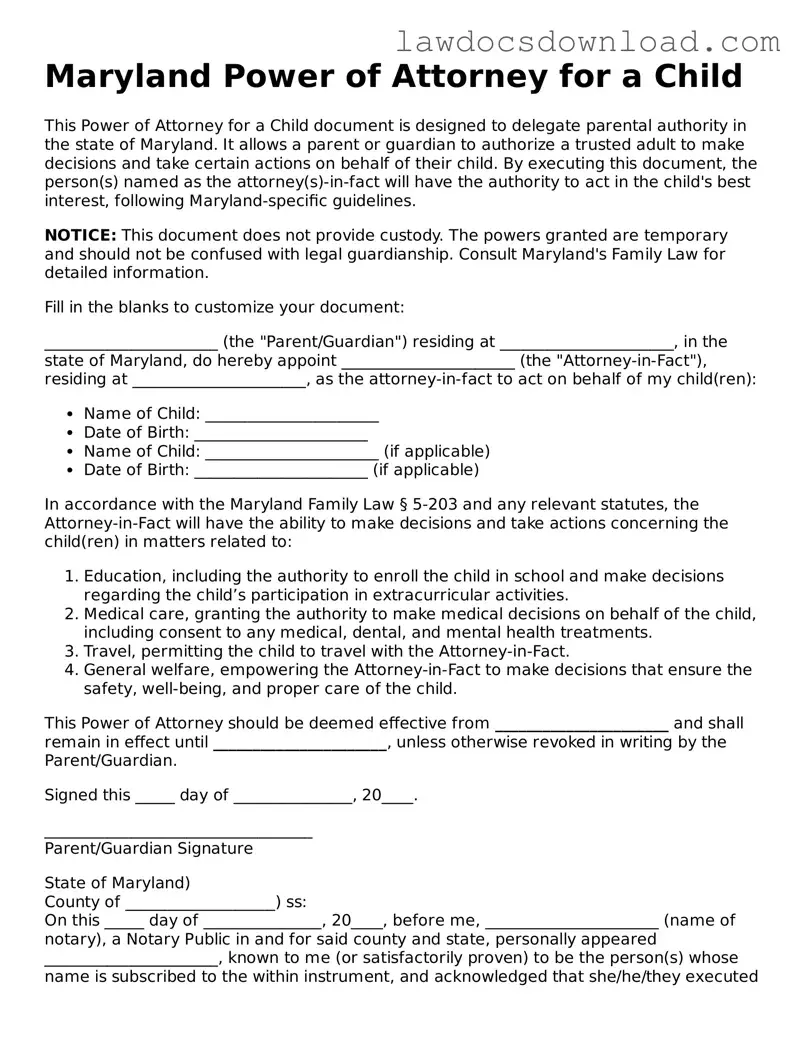Maryland Power of Attorney for a Child
This Power of Attorney for a Child document is designed to delegate parental authority in the state of Maryland. It allows a parent or guardian to authorize a trusted adult to make decisions and take certain actions on behalf of their child. By executing this document, the person(s) named as the attorney(s)-in-fact will have the authority to act in the child's best interest, following Maryland-specific guidelines.
NOTICE: This document does not provide custody. The powers granted are temporary and should not be confused with legal guardianship. Consult Maryland's Family Law for detailed information.
Fill in the blanks to customize your document:
______________________ (the "Parent/Guardian") residing at ______________________, in the state of Maryland, do hereby appoint ______________________ (the "Attorney-in-Fact"), residing at ______________________, as the attorney-in-fact to act on behalf of my child(ren):
- Name of Child: ______________________
- Date of Birth: ______________________
- Name of Child: ______________________ (if applicable)
- Date of Birth: ______________________ (if applicable)
In accordance with the Maryland Family Law § 5-203 and any relevant statutes, the Attorney-in-Fact will have the ability to make decisions and take actions concerning the child(ren) in matters related to:
- Education, including the authority to enroll the child in school and make decisions regarding the child’s participation in extracurricular activities.
- Medical care, granting the authority to make medical decisions on behalf of the child, including consent to any medical, dental, and mental health treatments.
- Travel, permitting the child to travel with the Attorney-in-Fact.
- General welfare, empowering the Attorney-in-Fact to make decisions that ensure the safety, well-being, and proper care of the child.
This Power of Attorney should be deemed effective from ______________________ and shall remain in effect until ______________________, unless otherwise revoked in writing by the Parent/Guardian.
Signed this _____ day of _______________, 20____.
__________________________________
Parent/Guardian Signature
State of Maryland)
County of ___________________) ss:
On this _____ day of _______________, 20____, before me, ______________________ (name of notary), a Notary Public in and for said county and state, personally appeared ______________________, known to me (or satisfactorily proven) to be the person(s) whose name is subscribed to the within instrument, and acknowledged that she/he/they executed the same for the purposes therein contained. In witness whereof, I hereunto set my hand and official seal.
__________________________________
Notary Public
My Commission Expires: ______________________

